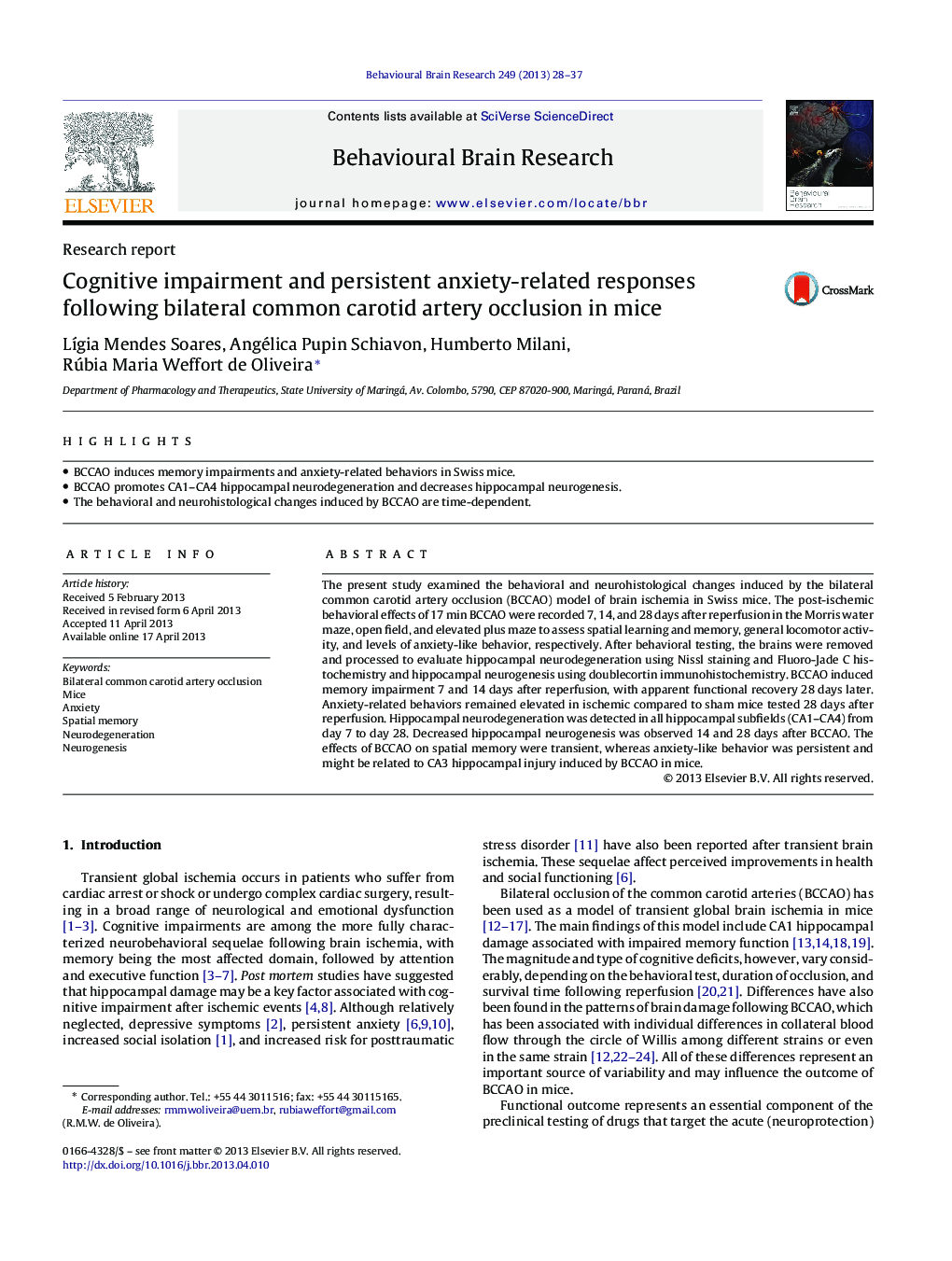| Article ID | Journal | Published Year | Pages | File Type |
|---|---|---|---|---|
| 6259104 | Behavioural Brain Research | 2013 | 10 Pages |
â¢BCCAO induces memory impairments and anxiety-related behaviors in Swiss mice.â¢BCCAO promotes CA1-CA4 hippocampal neurodegeneration and decreases hippocampal neurogenesis.â¢The behavioral and neurohistological changes induced by BCCAO are time-dependent.
The present study examined the behavioral and neurohistological changes induced by the bilateral common carotid artery occlusion (BCCAO) model of brain ischemia in Swiss mice. The post-ischemic behavioral effects of 17Â min BCCAO were recorded 7, 14, and 28 days after reperfusion in the Morris water maze, open field, and elevated plus maze to assess spatial learning and memory, general locomotor activity, and levels of anxiety-like behavior, respectively. After behavioral testing, the brains were removed and processed to evaluate hippocampal neurodegeneration using Nissl staining and Fluoro-Jade C histochemistry and hippocampal neurogenesis using doublecortin immunohistochemistry. BCCAO induced memory impairment 7 and 14 days after reperfusion, with apparent functional recovery 28 days later. Anxiety-related behaviors remained elevated in ischemic compared to sham mice tested 28 days after reperfusion. Hippocampal neurodegeneration was detected in all hippocampal subfields (CA1-CA4) from day 7 to day 28. Decreased hippocampal neurogenesis was observed 14 and 28 days after BCCAO. The effects of BCCAO on spatial memory were transient, whereas anxiety-like behavior was persistent and might be related to CA3 hippocampal injury induced by BCCAO in mice.
